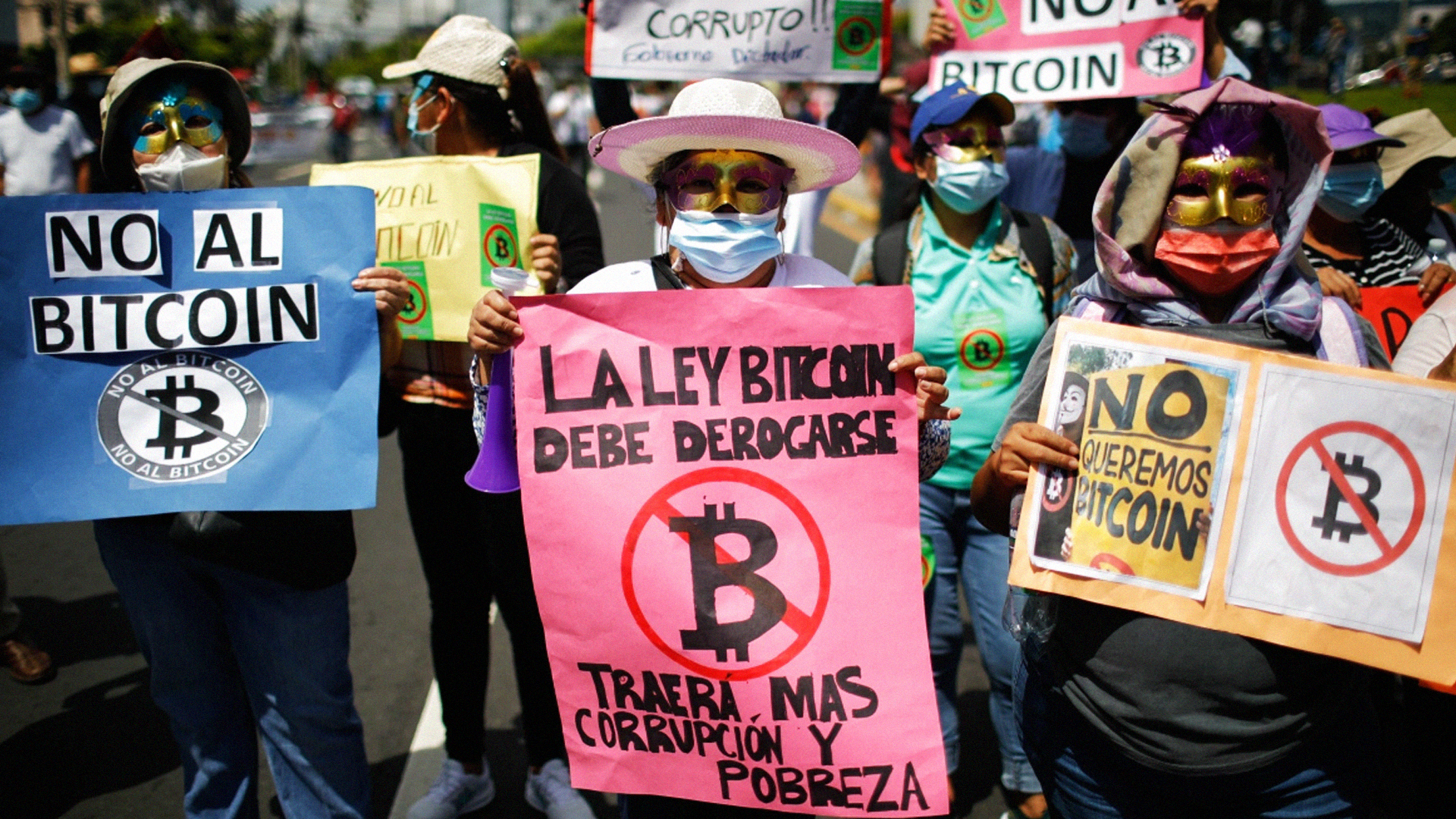All businesses with the capacity to accept crypto payments must legally do so in El Salvador. But why exactly are citizens up in arms over the changes imposed by President Nayib Bukele?
Once a novel business endeavour among young US traders, crypto currency is continuously spreading – much like a virus, if you ask the citizens of El Salvador.
On Wednesday (15/09), thousands of Salvadorans took to the streets to protest a newly imposed bill instating crypto currency as legal tender.
Some 4,500 protesters were up in arms believing the move – which is the first ever of its kind – to be an opportunistic grab from President Nayib Bukele’s to weaken democratic institutions and consolidate his grip on the country’s wealth.
Despite recent polls suggesting such a policy would be opposed by close to 70% of surveyed citizens, the bill was ultimately passed. Almost immediately, this culminated in mass demonstrations and Bitcoin ATMs being vandalised across the capital.
Aside from crypto currency being ridiculously confusing, you’re probably wondering what it is about these changes that has stirred such outrage. Let’s do some delving.
La actividad en el centro histórico de San Salvador transcurre sin sobresaltos mientras un cajero Chivo es consumido por el fuego tras las manifestaciones contra la bitcoinización de El Salvador. Video LPG/Michael Huezo. pic.twitter.com/fMPdWt7MNk
— La Prensa Gráfica (@prensagrafica) September 15, 2021
Why are people protesting?
If you brush up your Spanish, first glance at the signs held by protesters reveal that large parts of the country were staunchly against Bukele’s tenure to begin with.
Brandishing indictments like ‘Bukele Dictator,’ the president has been under fire from labour unions, students, healthcare workers, farmers, LGBTQ+ groups, and indigenous communities since taking the hot seat in 2019.
The youngest leader in Latin America came into power at 39, seizing the region’s constitutional court and attorney general’s office as his first line of business.
Ever since, his constituency’s major moves have met resistance from rights groups, claiming his quest for power is turning the country into a dictatorship. Joe Biden has since distanced the US from Bukele.
Hence, when Bukele claims the mandate of Bitcoin will make remittance payments ‘cheaper and faster’ for businesses, certain groups struggle to trust his intentions.
Instead, those partaking in demonstrations are adamant the move is a way to gain further influence over El Salvador’s wealth and to distract from real problems that need confronting.
To make matters worse, the day of the rollout was plagued by technical hitches, not to mention a slump in the actual price of Bitcoin of around 10%.




















